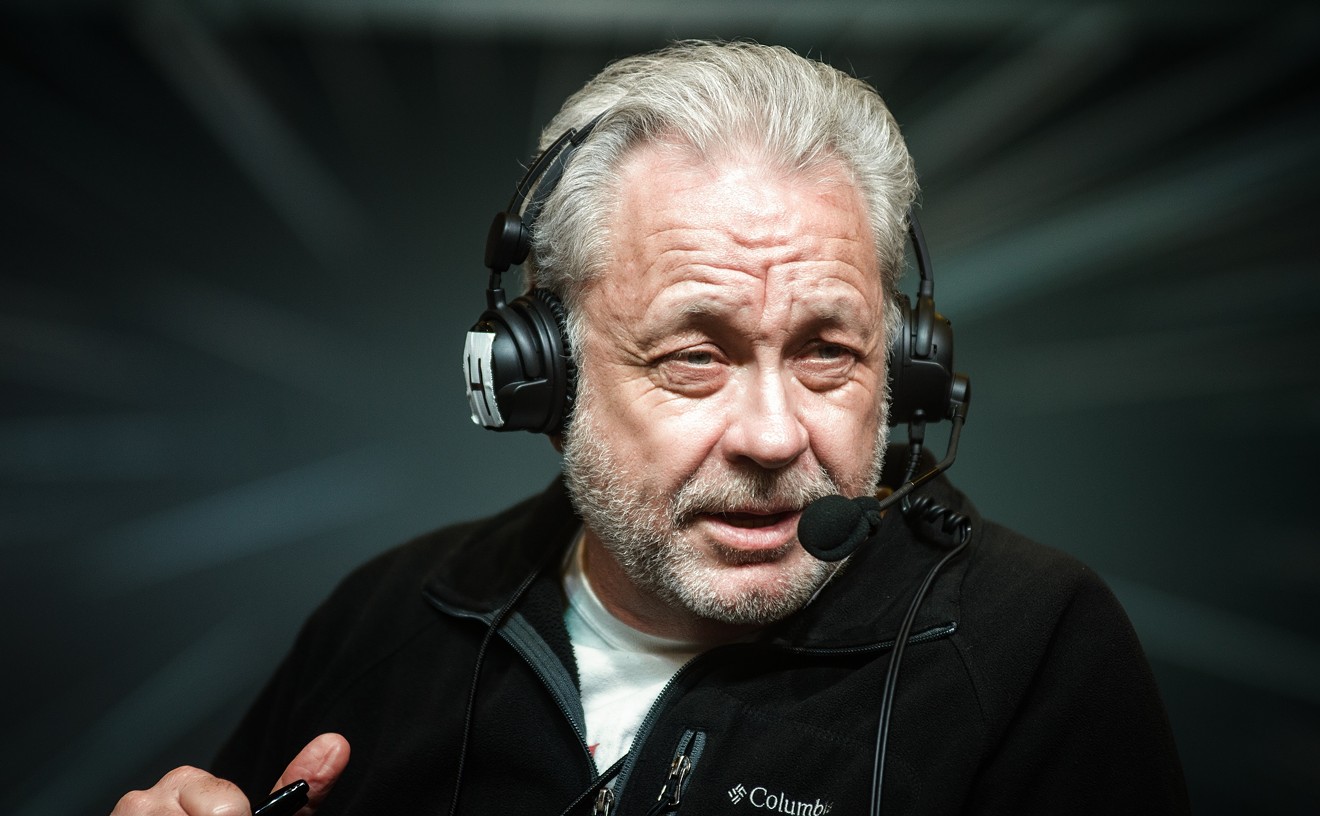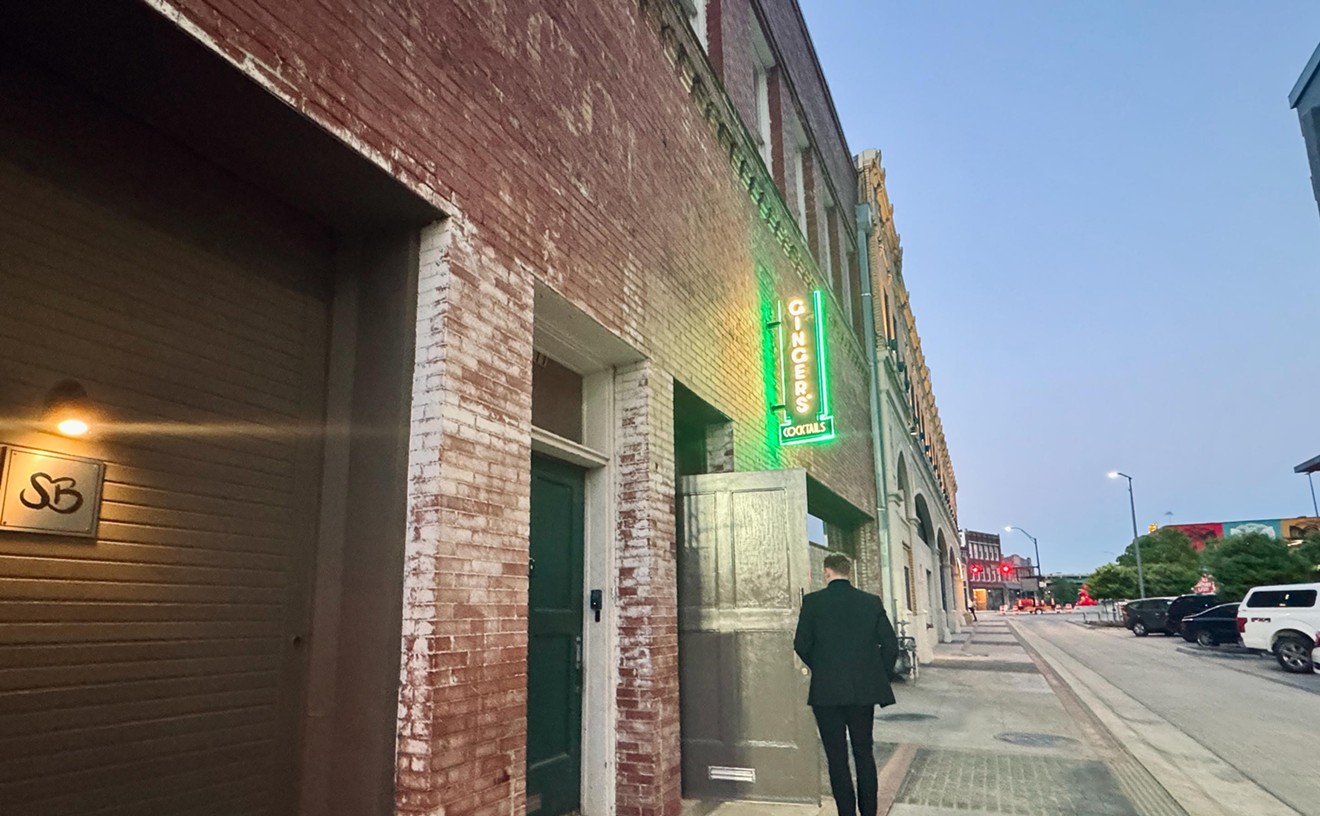Now Korine has returned with Julien Donkey-Boy, this time under the auspices of the "Dogme 95" manifesto put forward by Lars Von Trier, Thomas Vinterburg, and several others -- the gist of which is that handheld cameras must be used, nothing artificial may be added (including props, costumes, lighting, and any postproduction effects), and all sound must be recorded on-set. It should be noted, however, that Korine adheres to this philosophy about as liberally as Bill Clinton defines sex. Special effects such as slow motion and freeze-frame are used, but since these effects can now be done in-camera, it seems they're technically not special effects. Much of the music is far too clean to have been recorded while shooting, but Korine almost certainly used a technological excuse to get around this too, jacking the sound in directly from a CD player, for instance, while the camera was still rolling.
Dogmatic gimmickry aside, however, it's pretty clear that Korine follows no rules but his own. The story, inasmuch as one can be said to exist, follows Julien (Ewen Bremner), a schizophrenic young man who lives in a New York suburb with a perverted German father (the legendary Werner Herzog, acting like Mike Myers' Dieter), a grandmother (Korine's real-life grandmother Joyce), a brother who aspires to be a wrestler (Evan Neumann), and a sister whom he has raped and impregnated (Chloe Sevigny). The movie stylistically mimics Julien's disjointed perception of the world around him and is full of jump cuts, odd angles, and overlapping sounds, all shot in grainy digital video, mostly with an orangy tint. Julien spends his days working as an attendant in a school for the blind (according to the press kit, anyway; the film is infuriatingly vague on this point), and his nights are spent spouting off endless random dialogue to no one in particular. Constantly berated by his drug-addicted father, Julien finds solace in the friendship of his sister, who doesn't seem to begrudge him the rape/incest thing, and an 11-year-old half-blind ice-skater (newcomer Chrissy Kobylak).
As Julien, Ewen Bremner is fantastic. Having already proven himself fearless in Trainspotting and The Acid House, Bremner leaps so wholeheartedly into convincing schizophrenic mode that most people won't even stop to admire his flawless American accent (his natural dialect is near-incomprehensible Scottish). Complete with metal teeth and a mop of vertical black hair, Bremner's Julien looks like a cross between Edward Scissorhands and Bond villain Jaws, and he elicits the same blend of sympathy and fear that such a combination implies. Herzog, meanwhile, steals every scene he's in, whether he's remembering a talking bird from his youth or begging his son to put on a dress and dance with him. And skater Kobylak, whom Korine discovered from watching Hard Copy, is a natural on camera.
Visually, Korine revisits many familiar Gummo motifs. There's a drummer with no arms, a man who swallows cigarettes, another who takes a bath in dirty water, yet another who wrestles with an inanimate object, and numerous extras with varying degrees of physical or mental disability. It has been argued that Korine is mocking these people, but Julien makes it more apparent that Korine is squarely in their camp, as the film's intent is to let us see the world through the eyes of a schizophrenic. It can be maddening sometimes (it would have been nice to have the school for the blind identified as such even once), disturbing (Julien's sudden acts of violence, including the rape scene), or even boring (long stretches of stream-of-consciousness monologue). The overall feeling of Julien Donkey-Boy, in fact, is that it's a transition, a baby step forward toward a more narrative style -- undeniably interesting, but not entirely successful.










